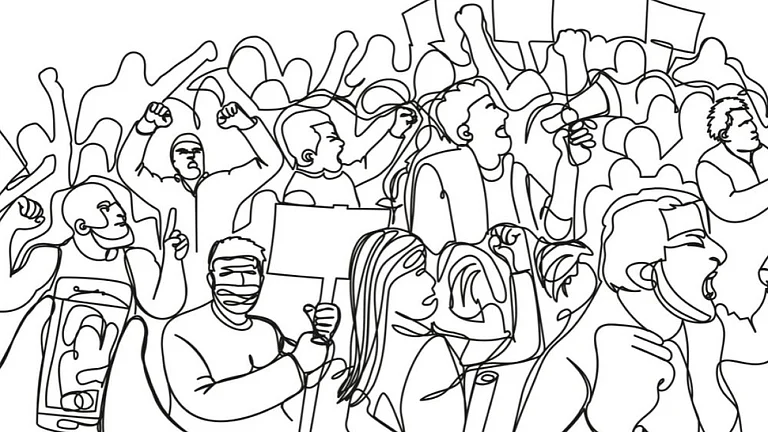It helps if one knows Andaleeb Wajid and her work before embarking on her memoir – this is after all a writer’s way of coming to terms with grief. However, one discovers that half way through the book while reliving the issues of COVID and the way to affects Wajid’s life. Through the work of ICU’s B-Paps and saturation one travels a world of impending loss though no one knows what is to come – the family has tested positive bit by bit. Gradually her mother in law and then her husband, in different hospitals pass away.
The fact that they were living breathing people with likes and dislikes who told stories, loved good food and perfumes is lost in the morass of machinery and the doctors’ and nurses’ dry observations. In the world of hospitals people are just bed numbers and once they are gone the machines are quickly removed to be reused elsewhere.
Wajid moves from the world of the hospital to writing about her childhood, her issues with studies and her love for her father whom she loses at the age of 12. The story of her marriage to her cousin Mansoor gradually unwinds – she attributes the fact that she writes YA books because he life was paused as a teen when she learnt she was going to marry her older, cooler cousin. There are the issues of mourning, getting used to a new room when she starts her iddat and recollections of how her husband got used to her writing – from the lights of her laptop to her prescient prediction in a lift about a couple in it.
Wajid has family, her mother and mother in law were sisters. She has two sons after losing her daughters in the womb. There is a trail of loss interwoven with the COVID strike and how she wore a PPE over her burkha to visit her husband for one of the last times. The title of the book comes from the fact that she was used to making tea for herself, her mother in law and her husband until the day she realised that she was the only tea drinker left. She weaves back to drinking tea on Hajj and how the three of them were averse to teabags preferring to drink overboiled tea.
She starts writing to deal with grief, as one would expect from a writer with over 50 books to her credit - even though she is unsure if that is the right thing to do and she explores how other writers deal with losses that cuts through the bone and skin until she begins to realise that writing provides its own kind of healing. To that she adds crochet and watching TV, Possibly the different kinds of emotions that she channels through her writing added adaptability to the different kinds of loss that she had to deal with.
Wajid’s story numbers the loses, grandparents, an aunt – unexpectedly on the day after her iddat ends – not to mention her father, mother in law and husband. Certain memories recur – her mother in law’s protest when Wajid is released from the hospital and she is not, Or the way she felt after her husband’s death and the dreams that troubled her until she woke up out of them.
There is an account of her first Hajj with her two teenage sons where they learn how to drape the ihram from YouTube since there are no male members of the family present and the shock of realising that her sons were now grown up, She ends by mentioning the fact that her writing was recognised and her novel Asmara’s Summer was adapted for screen to become Dil, Dosti, Dilemma an achievements that helped in her healing process.
Lucidly written and an easy read Wajid’s memoir tells the story of coming to terms with loss in simple terms surrounded by her own awareness or worries regarding the reactions of family and society. It is not, she writes, easy regardless of everything. And yes, whenever she is referred to as Wajid, she remembers her grandfather – another cherished memory. The book will also remind people of those horrifying COVID years which are relived to the ironic cooing of koels.
















